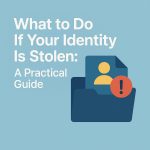The Silent Industry Profiting from Your Digital Footprint
Ever wondered why, after browsing for a new pair of shoes, you suddenly see ads for sneakers on every website and social media platform? The answer isn’t magic—it’s data brokers. These shadowy entities operate quietly in the background, collecting, packaging, and selling your personal information without you even knowing.
Data brokerage is a multi-billion-dollar industry that thrives on the scraps of your digital life—your search history, purchasing habits, social media interactions, and even location data. But who are these brokers? How do they operate? And, most importantly, how does their work impact your privacy?
What Exactly Are Data Brokers?
Data brokers, also known as information brokers or data aggregators, are companies that gather and sell consumer data. Unlike advertisers or platforms like Google and Facebook—who collect your data to tailor ads—data brokers do not have direct interactions with users. Instead, they scrape, purchase, and compile information from various sources to create detailed profiles on individuals, which they then sell to marketers, financial institutions, insurance companies, and even political campaigns.
Where Do Data Brokers Get Your Information?
The unsettling part? Data brokers don’t need your explicit consent to gather your information. They acquire it from:
- Public Records: Government databases containing property ownership details, voter registrations, and court documents are gold mines for data brokers.
- Online Activity: Browsing history, search engine queries, and social media activity contribute to your digital footprint, which data brokers happily scoop up.
- Retail and Loyalty Programs: Ever signed up for a discount card at your favorite store? Congratulations! Your purchase history is likely being tracked and sold.
- Mobile Apps: Many apps request permissions to access your location, contacts, and even microphone. That data often finds its way into broker databases.
- Data Breaches: When a company is hacked and customer data is exposed, brokers quickly acquire and integrate that data into their vast repositories.
The Business of Selling You
Once data brokers have enough details, they classify and categorize people based on various factors—income level, purchasing habits, family structure, medical concerns, and even political leanings. The result? A fully fleshed-out profile that can be sold to the highest bidder.
For example:
- Marketers buy data to target specific demographics.
- Insurance companies analyze your health and financial history to adjust policy premiums.
- Debt collectors purchase data to track down individuals who owe money.
- Political campaigns use brokered data to micro-target potential voters.
The Dark Side of Data Brokerage
While data brokers claim their services are harmless—simply helping businesses reach the right audience—there are some serious concerns:
1. Privacy Intrusions
The idea that strangers know everything from your income bracket to your favorite brand of cereal is unsettling. Worse, this data can be used in ways you never intended, such as denying you a job or increasing your health insurance premiums based on assumed risk factors.
2. Identity Theft & Security Risks
Data brokers accumulate vast amounts of personal information, making them prime targets for cybercriminals. If a broker gets hacked, your sensitive details—such as addresses, phone numbers, and even Social Security numbers—could be exposed.
3. Stalking & Harassment Risks
Certain brokers sell “people search” services, allowing anyone to look up home addresses, phone numbers, and even relatives’ details for a small fee. This puts individuals—especially those in vulnerable situations—at serious risk of stalking and harassment.
4. Lack of Transparency & Control
Most consumers have no idea that their data is being collected, let alone sold multiple times over. Trying to opt out is like playing an endless game of whack-a-mole—remove yourself from one database, and your information appears in another.
How to Fight Back Against Data Brokers
So, is all hope lost? Not necessarily. While completely erasing your digital footprint is nearly impossible, there are steps you can take to minimize your exposure.
1. Reduce Your Data Trail
- Avoid using social media logins to sign up for new websites.
- Be mindful of what personal details you share online.
- Use privacy-focused search engines like DuckDuckGo instead of Google.
2. Use Ad & Tracker Blockers
Browser extensions like Privacy Badger, Ghostery, and uBlock Origin prevent websites from tracking your online behavior.
3. Opt-Out of Data Broker Lists
Some data brokers allow consumers to request data removal. However, this process is often tedious and not always permanent. Services like Uncompromized streamline this process, helping individuals remove their information from broker databases more effectively.
4. Be Wary of Free Apps & Services
If an app or website is free, you are the product. Always check privacy policies before granting permissions, and disable location tracking for apps that don’t need it.
5. Monitor Data Breaches
Use tools like Have I Been Pwned to check if your email or passwords have been compromised in a breach. If so, update your credentials immediately.
The Future of Data Privacy: What Needs to Change?
Governments worldwide are starting to take action against the unchecked power of data brokers. Laws like the General Data Protection Regulation (GDPR) in Europe and the California Consumer Privacy Act (CCPA) give users more control over their personal data. However, these laws are still playing catch-up with the industry.
For meaningful change, we need:
- Stronger regulations requiring brokers to obtain explicit consent before collecting and selling data.
- Greater transparency from companies regarding how they handle user data.
- Easier opt-out mechanisms for individuals who want to remove their information from broker databases.
Protecting Yourself in the Age of Data Brokers
The reality is, we live in an era where our personal information is a commodity. But that doesn’t mean we have to surrender our privacy without a fight. By taking proactive steps to protect your data and using tools designed to scrub your digital footprint, you can significantly reduce your exposure.
At Uncompromized, we believe that privacy is a right, not a luxury. Our platform helps individuals reclaim control over their personal data, offering identity theft protection, dark web monitoring, and data broker privacy scrubbing—all in one place. If you’re ready to take back your digital privacy, we’re here to help.
Remember, in the world of data brokers, you’re either the buyer or the product. Choose wisely.






